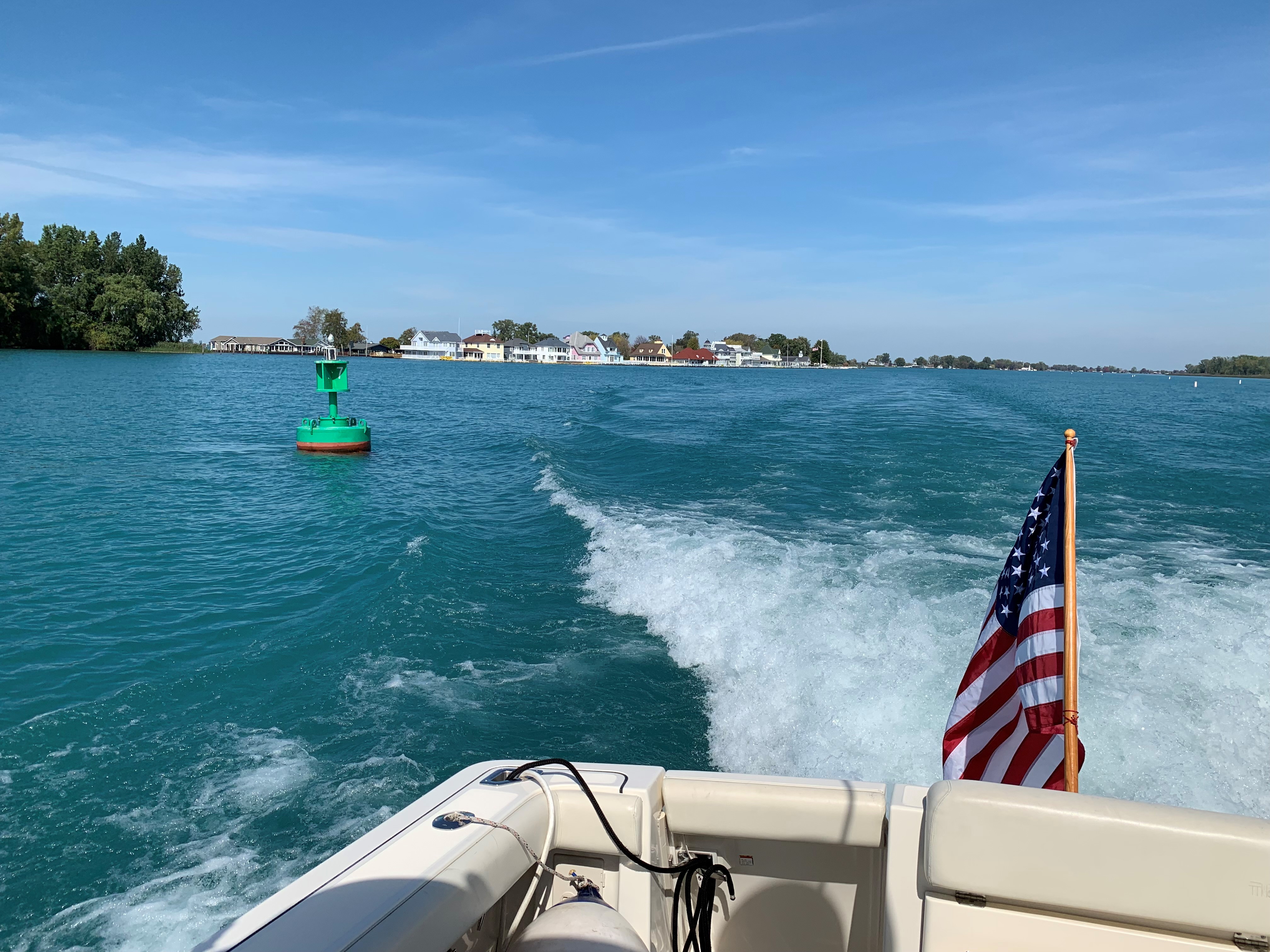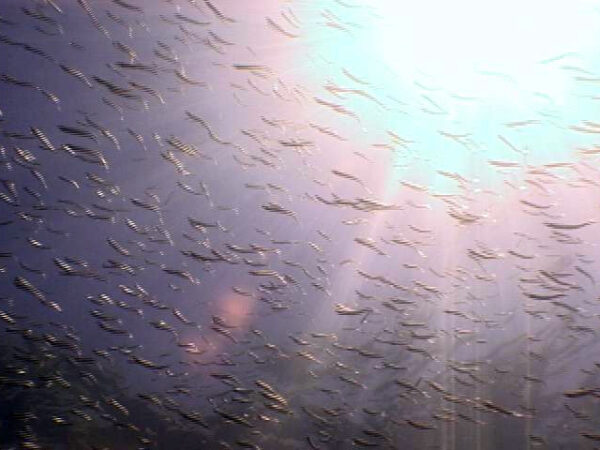
Editor’s Note: This article was updated on Jan. 28, 2020, to reflect additional comments from the bill’s sponsors.
The Department of Natural Resources and local municipalities could temporarily lower the maximum motorboat speed limit in Michigan waters under a new bill in Lansing.
House Bill 5401, which is scheduled for a hearing in the Michigan Committee on Natural Resources and Outdoor Recreation on Tuesday, was introduced by Rep. Gary Eisen (R-St. Clair Township) on Jan. 23. It amends the section of the Natural Resources and Environmental Protection Act that covers motorboat speed restrictions and limits.
The amendments would allow the DNR or county sheriffs to establish a temporary maximum boat speed on Michigan waters if requested by county or municipality resolution “to protect life and property during high water conditions.”
The people of District 81—Eisen’s district—had asked him to look into the issue. He drove through the area, taking photos, seeing shin-deep water in people’s yards. He also saw motorboats go speeding by, adding another few feet of water to already flooded properties in the process.
“What I’m hoping to accomplish with this is simply some common sense approach,” Eisen said. “When these 30- to 40-ft cruisers go by they can have a bit of consideration and slow down for a mile. During that period of time when the water’s that high, I would think it’s common courtesy to slow down a bit, but some people have a hard time understanding that unless they live on the water.”
In addition to Eisen, the bill has six other sponsors, four of whom are fellow Republicans—Rep. James Lower of Greenville, Rep. Douglas Wozniak of Shelby Township, Rep. Steve Marino of Harrison Township and Rep. Pamela Hornberger of Chesterfield Township.
Rep. Kevin Hertel (D-St. Clair Shores) and Rep. Joseph Tate (D-Detroit) are the other two sponsors.
“I thought it was a great idea and wanted to make sure it had some bipartisan support,” Hertel said. Last summer, he noticed that boaters were unclear about what areas of waterways and lakes were no-wake zones and who could enforce what, he said.
“In my mind it creates a clarification,” Hertel said. “With the high water we have in my neck of the woods and really all over the state, we’ve had a lot of confusion with boaters and law enforcement what areas are no-wake, and this bill would allow the DNR and local sheriffs to be able to impose restrictions in certain areas.”
While some of the high water and erosion issues will happen anyway, Hertel is hoping House Bill 5401 will help prevent adding to the situation.
Watch Great Lakes Now’s monthly show segment on high water and eroding shorelines:
API key not valid. Please pass a valid API key.“This will just give locals more of an ability to protect residents in their community by being able to restrict in certain areas where we’re seeing damage because of wakes that are coming from boats in the area,” Hertel said. “They will hopefully be able to put in place some limits so those wakes won’t be as damaging to someone else’s property.”
Lower’s district isn’t directly affected by the issues addressed in this bill, but he still saw the importance of regulating wakes.
“You’ve seen the stuff with the lake shore erosion and things of that nature on my side of the state, the west side, and you’ve actually got some inland lakes in my district that are causing issues for property owners, but this issue with the wakes and high water is definitely something we need to address,” he said.
The other sponsors of the bill did not immediately respond to Great Lakes Now’s requests for comment.
If the bill is passed as-is, the temporary speed limit can only be set for no more than 14 days but can be reissued after that. Also, violators of any temporary maximum motorboat speed limits can get fined no more than $500 and are subject to a state civil infraction if it is a DNR-set limit or a municipal civil infraction if it is a sheriff-set limit.
The bill still needs to pass the Committee on Natural Resources and Outdoor Recreation before it can go on to the full House and Senate.
House Bill 5401 is on the Committee on Natural Resources and Outdoor Recreation agenda for its Jan. 28 meeting, which will be streamed online on the Michigan House of Representatives website at noon.
Considering the bipartisan sponsorship, Hertel is hopeful that the bill will be passed.
“I approach every issue with a sense of optimism that we can come together and find a solution,” he said. “I think this is important to many people across the state.”
Watch Great Lakes Now’s monthly show segment on lake levels:
API key not valid. Please pass a valid API key.Featured image: Boating on the St. Clair River’s south end. Photo by Sandra Svoboda.
2 Comments
-
Regulate the wake size, not the speed. A Bass boat, ski boat going 50mph makes a minimal wake. Wake size and distance from shore are the critical factors in on shore impact.
-
Crooked Lakes in Genoa Township have very high water levels. There are also many wake boats being driven irresponsibly causing environmental/property damage and endangering other boaters. The problem is the wake boats.




